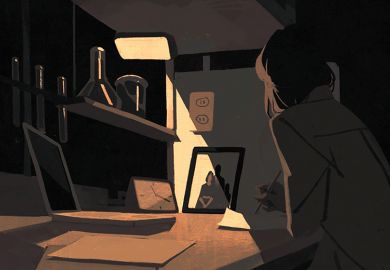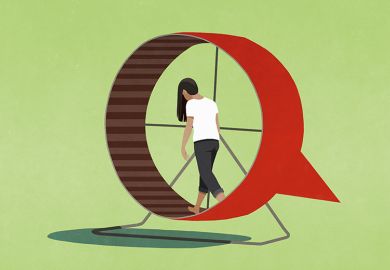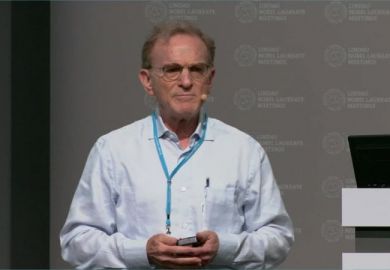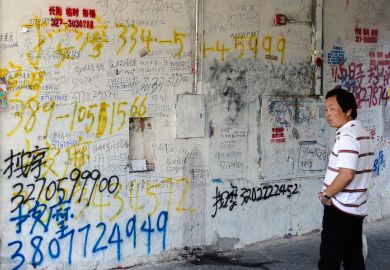As someone who appreciates The Lord of the Rings, I can’t help but liken my own recent life-changing experience to Gandalf the Grey’s metamorphosis into Gandalf the White.
Tolkien’s powerful wizard has a (near?) death experience fighting an evil entity, a Balrog, but he is sent back to Middle Earth in his new guise to complete his mission. I too came face to face with mortality – not in battle with a monster but on a London bus, one evening in mid-October.
I had announced my intention to retire in August and was busy with my final classes and duties. A totally unexpected episode of severe and prolonged atrial fibrillation tachycardia – a super-fast and irregular heart rhythm – led to me collapsing and needing emergency resuscitation and treatment. It was the end of a very intense day, and apparently strain can trigger such a thing. I had, of course, ignored all warning signs since I had too many other things to do.
Since that day, things have not been right with me healthwise. However, newly medicated, I trust I will come out the other side fine eventually – even if not in long white robes. As a professor emerita, for instance, I expect to continue researching and writing, staying closely connected with colleagues. But I am still in the transition period of understanding my condition, living with a sense that my health is more fragile than I imagined.
Having such an experience certainly makes you pause for reflection. It communicates what are the most important things in your life – the things that truly matter. I can tell you now: they are your health and well-being and loving relationships – not your teaching, your administrative duties, or even your research.

So, for the sake of postgraduates and early-career colleagues in particular, I want to reflect on my university teaching career as an academic who is also a woman, a wife, a mother, a daughter, a sister, an aunt and a friend.
Truly, our job is only one part of a life well lived. The relationships with those we love matter far more. Therefore, any institution we work for needs to be measured not only in how much it pays us but in terms of its success in sustaining us as whole people, who will likely have our most meaningful priorities elsewhere.
I have been lucky in that regard. King’s College London’s department of theology and religious studies has an ethos of care for each other and for students. This was apparent to me the moment I joined in 2009 and was proved in 2010, when my father had a stroke and died 16 months later, in 2012. It has also been brought home to me with my recent health issues, when colleagues kindly sat in my classes as a supportive presence.
But whether this ethos exists across most institutions is another question. The UK’s university sector has changed radically as it has experienced huge growth, becoming configured like a production line. Students are now customers, who buy education at great cost as a product that will lead to another product: the degree itself. The institution has to assure the quality of that product. And that causes it to see us as “human resources”, who supply services such as teaching and research outputs, administration and student care. Like “natural resources”, we are ultimately there to be exploited for economic gain.
In this model, our caring concern can be used against us, because our ethos of conscientiousness for students can go beyond what we are paid for – and what we should limit ourselves to for the sake of our own well-being.
Like other UK universities, King’s has much on its website about well-being, both for students and for staff. It is amply clear that well-meaning people are trying to improve things. But there is throughout our internal support services a sense of individual responsibility: you, personally, are to manage your own well-being.
How institutional advice – particularly on achieving a “work-life balance” – works in practice is a particular concern. The materials at King’s, for instance, are located on outward-facing marketing platform designed to attract employees. These would-be recruits are told they will be contracted to work 35 hours a week. However, UK universities are also dropping entry standards to bring ever more students on to our courses – and the more students we have, the more our workload goes up, particularly as we are expected to ensure they all get through.
Students, both local and international, are increasingly stressed and seek detailed guidance from module teachers and support from personal tutors. There are more and more mitigating circumstances applications for extensions. And ever-proliferating investigations into poor academic practice now include trying to work out if AI has been used. All this eats up time, even if student assignments have been cut back to reduce the obvious pressures on both them and us.
Then there are the masses of other demands on our time: meetings, administration, student advising, examining and so much more. Opening and answering emails alone can take up half the day or more. We simply cannot do all that in 35 hours a week – or 28 if one day is a designated research day (which is also when we are supposed to write grant applications and do public engagement). Hence, we go over. We work weekends and evenings. The result is that we get worn thin – and, as I found out, being worn thin is actually a very dangerous state to be in.
I always thought of myself as a strong person with energy who could calmly handle a lot and who likes to be busy with interesting things. My sense of self has profoundly changed since my episode. And conversations with colleagues suggest to me that we as academics are increasingly experiencing chronic stress and poor sleep, leading to exhaustion and a variety of health problems. Our work-life balance is clearly wrong, and we need to prioritise our well-being. But is it all down to us? Can it be correct that it is our responsibility as employees to maintain well-being and a manageable work-life balance when the workload imposed on us goes so far beyond what can be done in a 35-hour week?
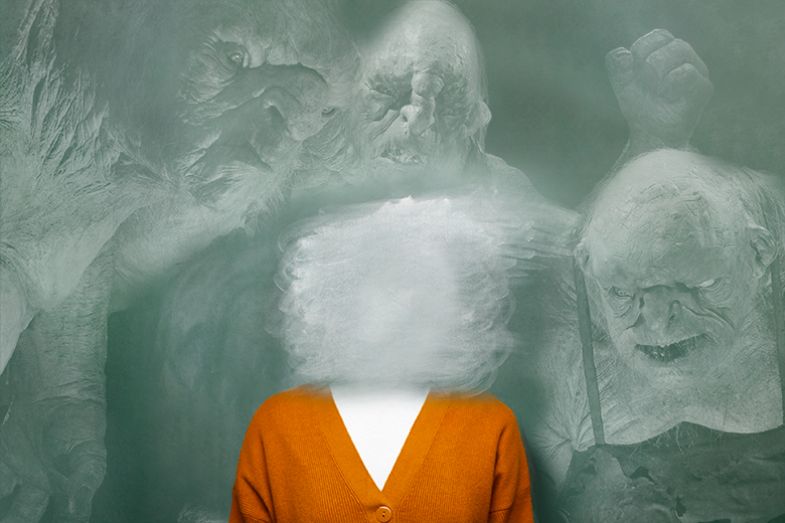
The situation is particularly hard for people with pressing family responsibilities. Yes, there are UK statutory rights to unpaid carer’s leave of up to five days per year, and you also have a statutory right to unpaid leave when there is an unexpected emergency for a dependant. At King’s you can even apply for three days of paid leave for this – and a career break of up to a year after five years’ service. But you need to work another five years before you are eligible again – and caring responsibilities are onerous at all times, not just in emergencies.
You can also apply for flexible working arrangements, such as going part-time. But that doesn’t help much if your loved one – such as an elderly parent – is in a far-flung location. And universities remain reluctant to countenance long periods of remote working even if you can fulfil your duties perfectly well that way. In the King’s global mobility policy, for instance, family care is not given as a valid reason to have more than 60 working days offshore over a year (or only 30 if you work part-time). And I am sure King’s is no different from other UK universities.
This presents real issues, familial, financial, and professional. My aged mother’s ongoing and unpredictable health issues have required me to be in Aotearoa New Zealand to support her and my overstretched brother as much as possible. I was granted unpaid leave of absence totalling 10.7 months, but no more was allowed. My request for extended remote working arrangements offshore for care reasons was denied too – since it had to be balanced with departmental needs and equity of treatment for other staff, I was told.
Hence retirement. Some people will undoubtedly try to manage their personal situations under the radar, which is often what happens when a policy is unworkable. But I advise anyone with family in far-flung locations to think carefully about how they would cope if any of their loved ones back home suddenly became disabled or long-term unwell.
So what could be done better? Have I experienced better? My academic teaching career began in 1992 at Waikato University, which is built on Māori land, with a level of Māori oversight and ethos embedded into how it operates. This ethos is called kaupapa Māori, the Māori way of doing things. In Māori culture you are who you are through your relationships, and, thus, there is much more awareness of what we are required to do as whole people.
There was still a way to go, but kaupapa Māori was there at Waikato. It was a family-friendly space, for instance. There were university holiday programmes for staff children. The university pool was our family pool. And I would think nothing of having my kids around in my office, too. Sometimes, though it wasn’t ideal: they would be in the classroom with crayons and paper when my husband and I had no alternative childcare arrangements.
Early on, when I first took my two-year-old daughter to my office on the fourth floor, I noticed that the railing around the stairs was not safe for small children. I informed the building maintenance team, and they promptly inserted new metal bars on all the stairwells of the entire, huge block. I did not get a message that the solution would be to not allow children in a work environment.
I’m told by King’s that children are allowed here, too – but only with a prior risk assessment and departmental approval. This to me says a lot: a space that is not friendly to staff’s family is not a friendly space.
In terms of workload, the long-hours culture was not an issue at Waikato in the 1990s. There were three to four hours of class each week, over two semesters of 12 teaching weeks, and an average of three to four courses a year to teach. I don’t remember feeling overwhelmed. There was time for family and friendships. As one former colleague reminisced recently: “Doors would slam at the dot of 5pm and everyone was out of there!” There were no student email accounts and no online module platforms: students largely confined their questions to actual office hours.
I did quite a bit of marking, but teaching and assessment was my job. Importantly, there was no second marking. It was assumed I knew the topic and could mark appropriately. External examiners reviewed marking once a year. As long as 67 per cent of the assessment for the course could be completed, students who missed a submission for serious reasons could be granted extensions of up to a week at the lecturer’s discretion.
Work submitted later than that would not be marked and, if the student could not manage, they would fail the course. We didn’t scramble to work out how to enable students to pass; there were no complaints or appeals that I remember. But students could make up for failed courses by taking intensive short summer courses specifically designed to enable them to get the credits they needed to complete their degrees.
Despite giving birth to my second child during those years, I also wrote books and numerous research articles – even though, at the time, there was no particular pressure to produce them; only later on did Aotearoa New Zealand introduce the now-scrapped Performance-Based Research Fund.
I am told that things were very different in UK universities in the 1990s, too. There were certainly fewer students. And even when I began at King’s, class sizes were often smaller and we knew many students well. We had control over our departmental timetable. We had departmental autonomy in many ways. And even when I headed the department teaching committee I didn’t drown in emails.
But while there is much that was good about the past, it is difficult to see how we could get back there given the system as it is now – particularly in such a dire financial environment. The very foundations of the economic model on which the UK universities rest are crumbling around us. In many universities, academic staff are being made redundant, which means they will not be replaced, meaning fewer staff will need to do more. Is this sustainable? Is this fulfilling the universities’ duty to maintain staff well-being? Moreover, how can universities be made to fulfil that duty in such circumstances – and in a system that keeps people in silent hunger – to impress, to achieve, to get ahead?
So to those young scholars aspiring to a permanent academic career, I’d say: “Be very careful.” It is wonderful to work in a subject you are passionate about, but the pressures that come with it may well make you wish your first degree had been in management. They may make you wonder whether you could research and write, even teach, much more comfortably doing another job altogether.
Whatever you do, think first of your own well-being and those you love – because you only have one life, and one body.
Joan Taylor is emerita professor of Christian origins and Second Temple Judaism at King’s College London’s department of theology and religious studies. This is an edited version of a speech marking her retirement that she gave on 28 November.
Register to continue
Why register?
- Registration is free and only takes a moment
- Once registered, you can read 3 articles a month
- Sign up for our newsletter
Subscribe
Or subscribe for unlimited access to:
- Unlimited access to news, views, insights & reviews
- Digital editions
- Digital access to THE’s university and college rankings analysis
Already registered or a current subscriber?

